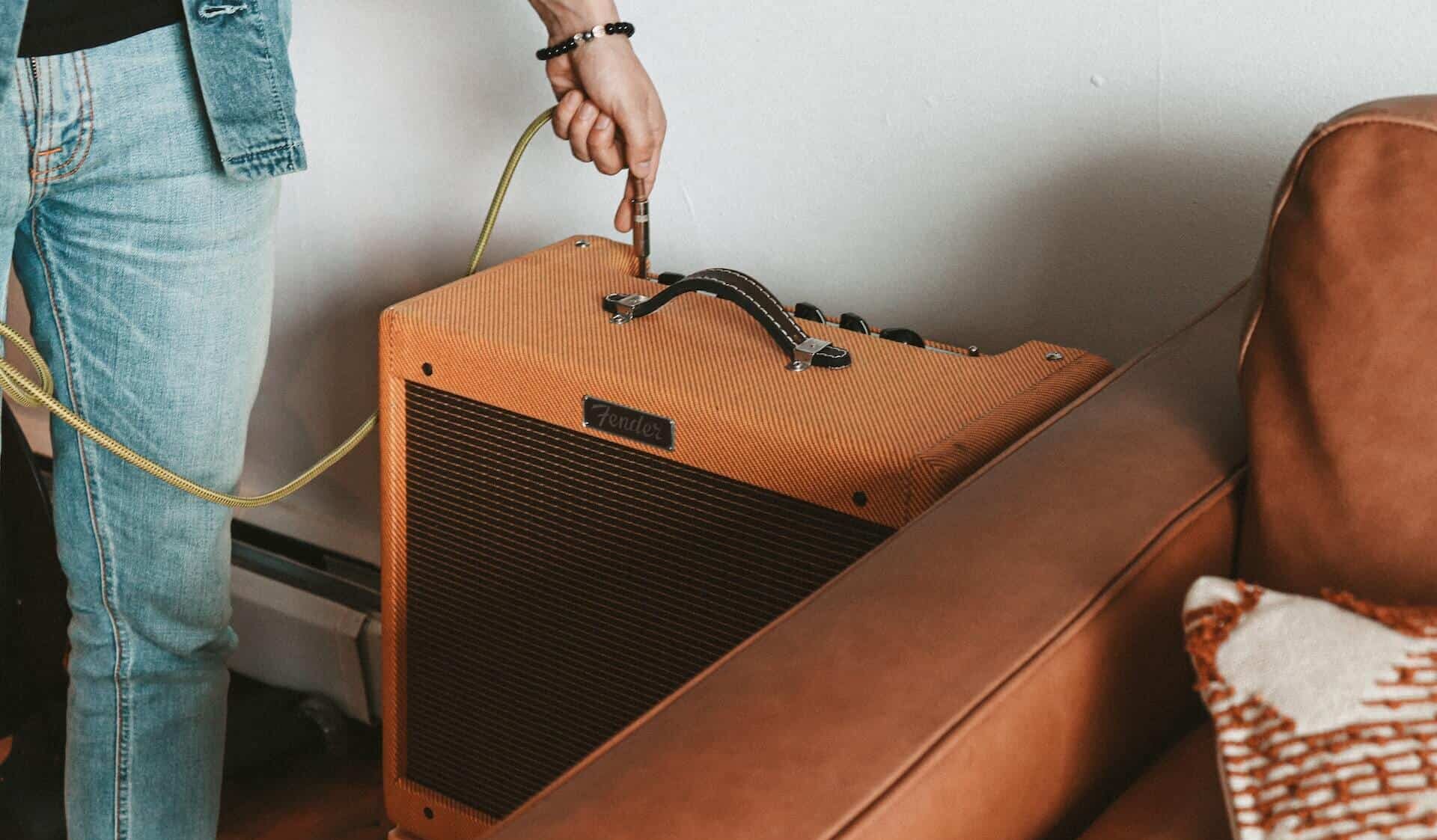As an experienced guitarist myself, I can vouch for the fact that the right gear is extremely important when you’re starting out.
And the best part? It doesn’t have to make a hole in your pocket!
We already made a massive roundup of the best electric guitars for every budget. But probably the most important piece of gear to accompany your guitar is a good practice amp.
If you plan to make the most out of your time practicing skills and songs, it’s essential to select an amp that’s suited for the songs you want to play and has enough features to keep you excited.
Now, guitar amps come in different varieties. This can create some confusion as to which one is best for you. In order to pick the ideal one for home practice, you need to look for features that are different from those you look for in amps for studio recordings or live performances.
To help you make the right decision, here’s a handy tutorial on how to pick the best guitar practice amp.
First Things First: Your Amp Should Be Easy to Transport
You probably won’t be practicing your guitar skills in the same place all the time. Therefore, you should opt for a practice amp that can be easily transported from one place to another without too many hurdles. You don’t want to waste too much energy and time every time you need to transport it.
A practice guitar amp is something you should be able to use in your living room, at a friend’s place, or on a road trip. It should be at least as easy to move around as the guitar itself.
Make sure it has a comfortable handle, doesn’t weigh too much, and doesn’t occupy too much space. Look for an amp that you can easily place in the corner of your car’s trunk or next to your leg while riding the bus or train.
The More Tones Your Guitar Amp Has, the Better
When evaluating different practice amps, avoid focusing too much on specific features and look for a product that gives you a very high degree of flexibility.
For example, you should keep in mind that the right practice guitar amp is not supposed to be the best at a particular tone. There are countless varieties of amps for those who want the best studio quality, those who look for the best performance on stage, those who play jazz, those who are into metal, and so on.
However, a practice amp is something you should be able to use when learning any new technique or playing any new song. It should come in handy whether you are playing at home, in a garage, or your garden, and whether you are a funk musician or a hard rock one.
For all these reasons, it’s important that your guitar practice amp has as many guitar tones as possible.
Practice amps are usually solid-state amps. They create tones digitally, which means a considerably higher number of tones compared to valve amps.
What About the Effects?
When looking for an amp that allows you to replicate any type of music, taking into account the number of available effects is also crucial.
Effects like reverb, overdrive, delay, tremolo, and compression multiply the number of creative options available, allowing you to adapt to any genre and type of song.
Make sure your guitar practice amp offers a wide selection of effects and modulations.
Other Features to Look For
In addition to being portable and offering many tones and effects, a guitar practice amp should include as many accessories as possible. You shouldn’t have to pay for extra accessories, which can also take up space and complicate things when you need to move them from location to location.
Focus on guitar amps that include the following features.
- Tuners – With these devices, you can measure the pitch of your guitar and then adjust it to the desired level.
- USB connection – It allows you to output audio straight into your computer using a USB cable.
- Footswitch control – When practicing, you should be able to use your foot to change the sound, select a channel, and activate (or deactivate) the desired effects.
- Wireless receiver compatibility – Cables are slowly becoming a thing of the past, so make sure you choose a practice amp with inbuilt wireless features.
Your guitar amp should allow direct recording into a computer and be compatible with software updates that increase sound quality.
Practicing with Other Musicians? Here is What to Take into Account
Music is a participative activity, and this applies to practice too.
You may need to practice songs with your band’s members before a performance, or maybe you just like improvising with friends and other musicians. When choosing a practice amp, you should consider its effectiveness when interacting with sounds from other instruments.
Obviously, this doesn’t depend entirely on you but also on the type of drum set or bass amp used by the other musicians.
In general, you should ensure your amp is powerful enough that its sound won’t be covered by the other instruments or at least more than it needs to be. Moreover, you should ensure its quality sound doesn’t decrease when playing at maximum volume, which is the case with some amps, unfortunately. A 75W – 100W solid amp is probably your best bet, and you should never go below 50W.
If you’re a beginner, remember that your guitar should not overpower the sound of the other instruments. Practicing also means finding the right balance between the sound and volume of each band’s component.
Are Quality Practice Amps Affordable?
Years ago, cheap amps were synonymous with annoying, high-pitched quality and nasty overdrive.
Over the years, we have witnessed a continuous improvement in the average quality of amps. Moreover, amps with great and flexible tones are increasingly available at affordable prices.
Nowadays, it’s entirely possible to find good, reliable, and flexible guitar practice amps for less than $200. Great brands like Fender, Marshall, Orange, Blackstar, Line 6, and BOSS all offer quality amps below that price. So much value for money would have been unthinkable years ago.

I’m Pranshu. I’ve been a passionate guitarist, keyboardist, and music producer ever since I got my hands on a keyboard as a small child.
With Harmonyvine, my goal is to share tips and knowledge about music and gear with you. I also enjoy recording music and guitar covers, which you can check out on my Instagram page.


I have a spark practice amp and I like it. I also have a range of Line 6 amps. 30, 75, and 150w head with a 4×12 cab. The spark is very versatile and packed with tones and features. I love the ability to play along with backing tracks.
A really helpful article on selecting an amp. One small point, you did not mention about choosing between valves and solid state? unless I missed it somewhere?